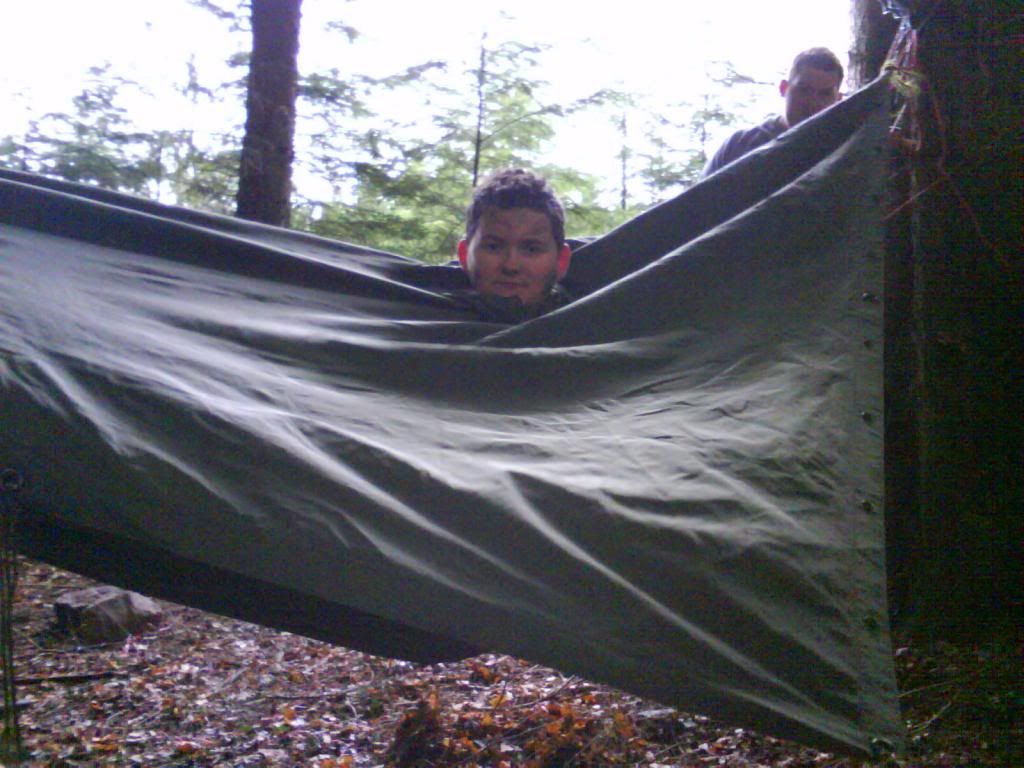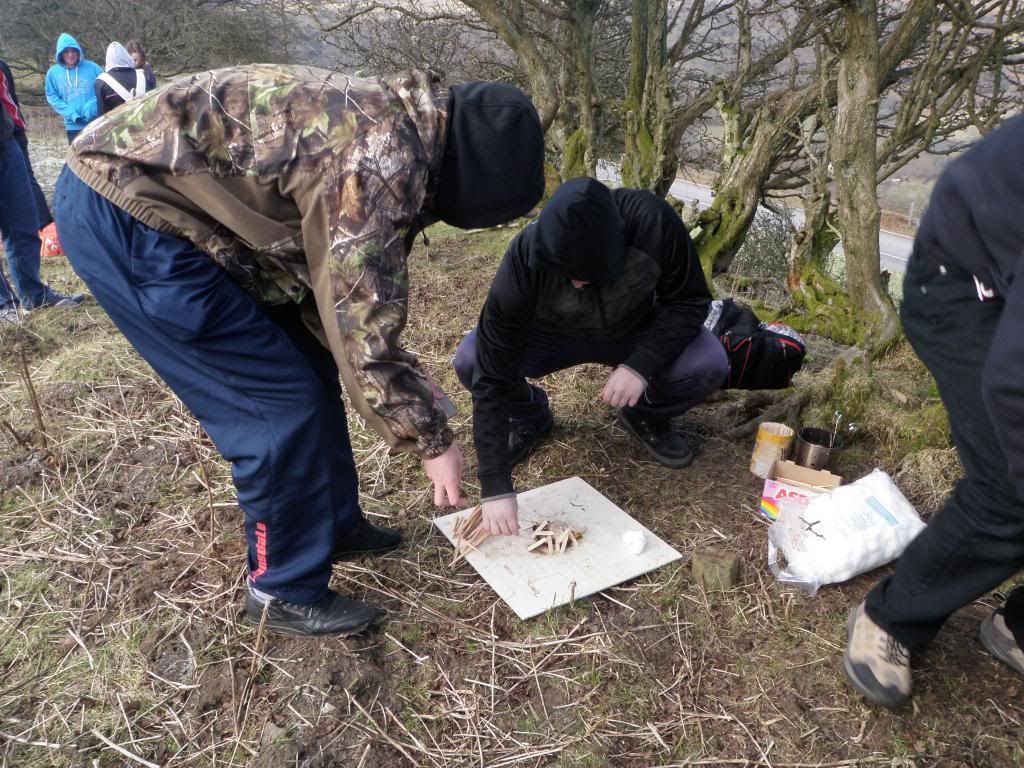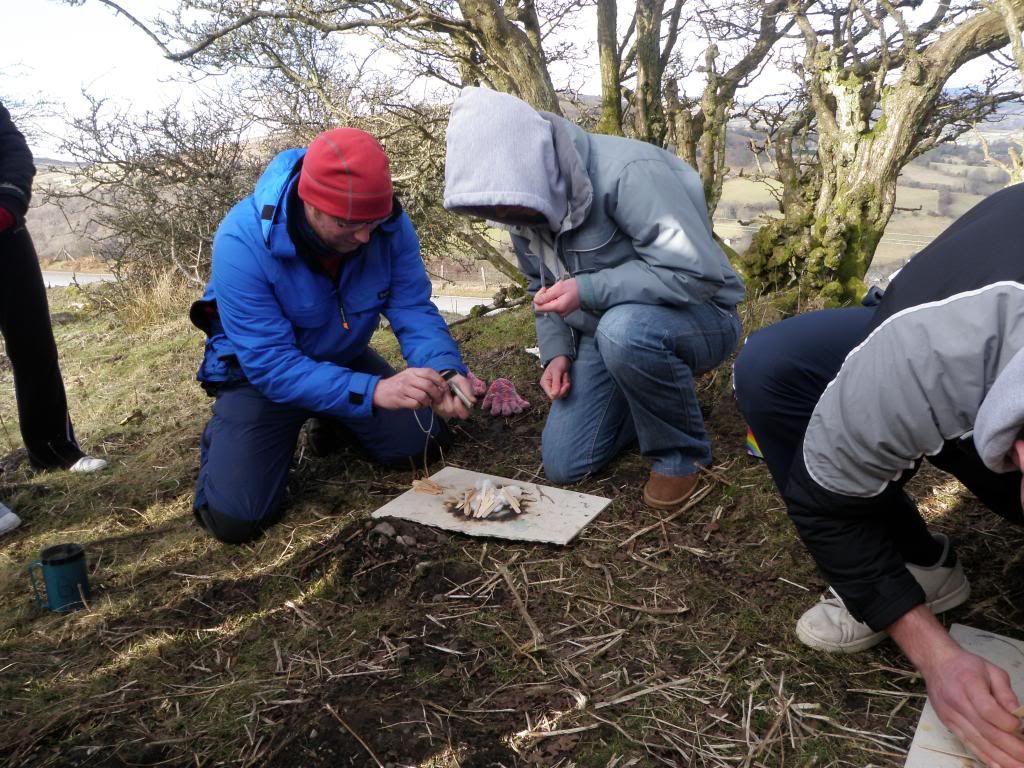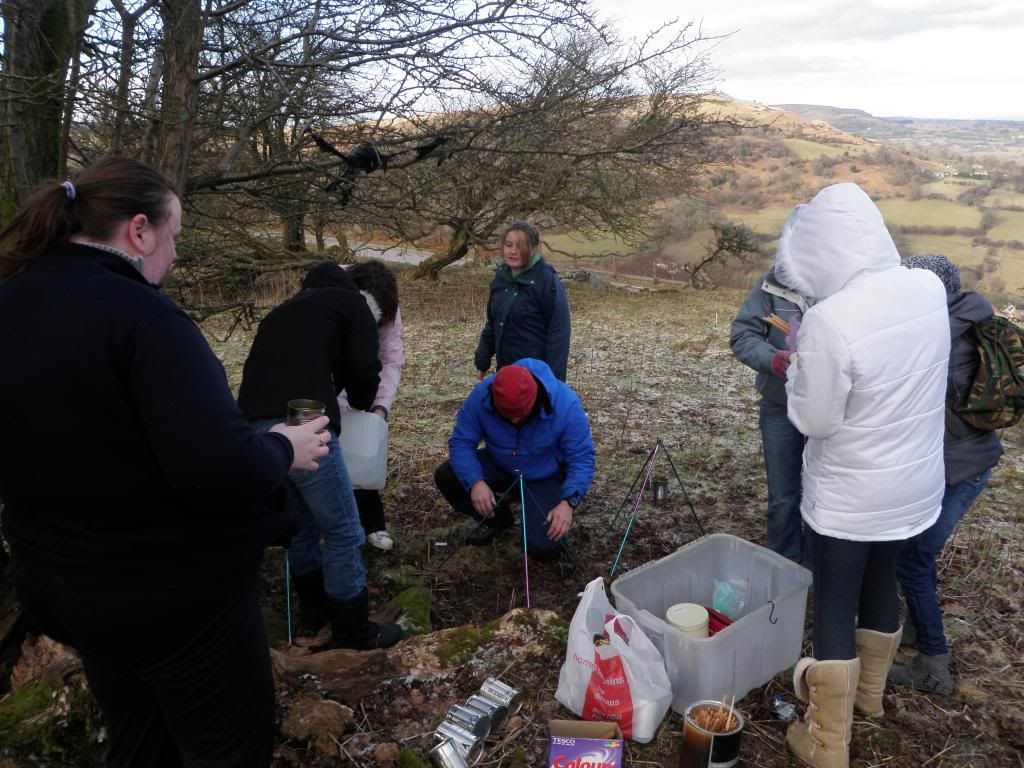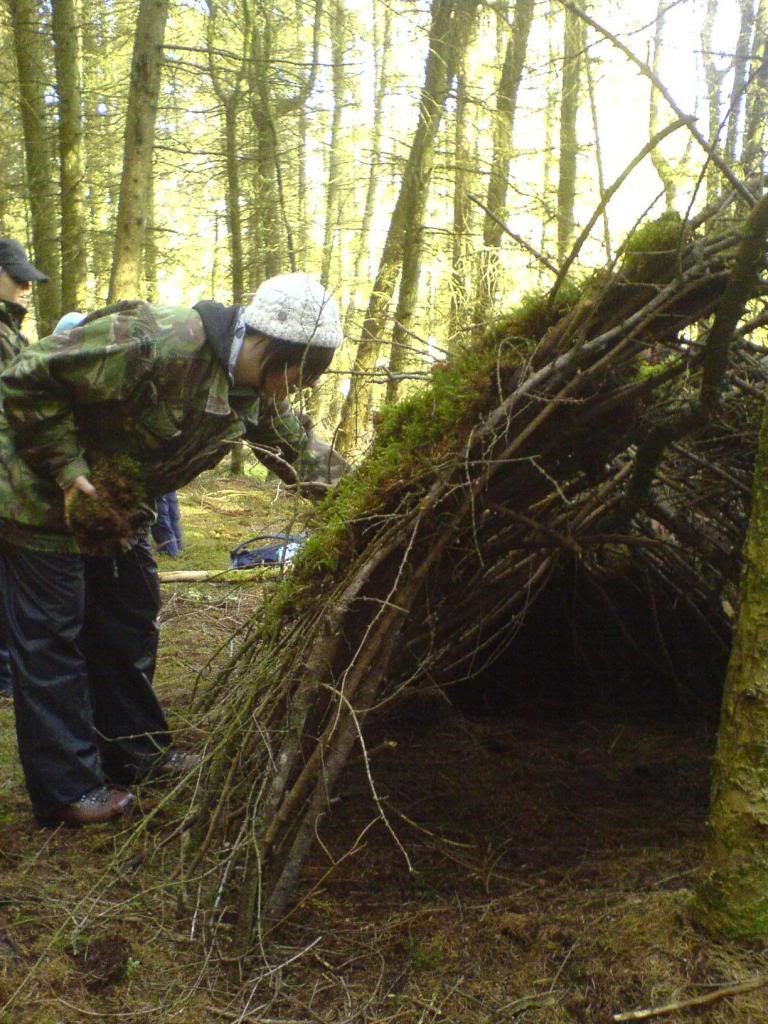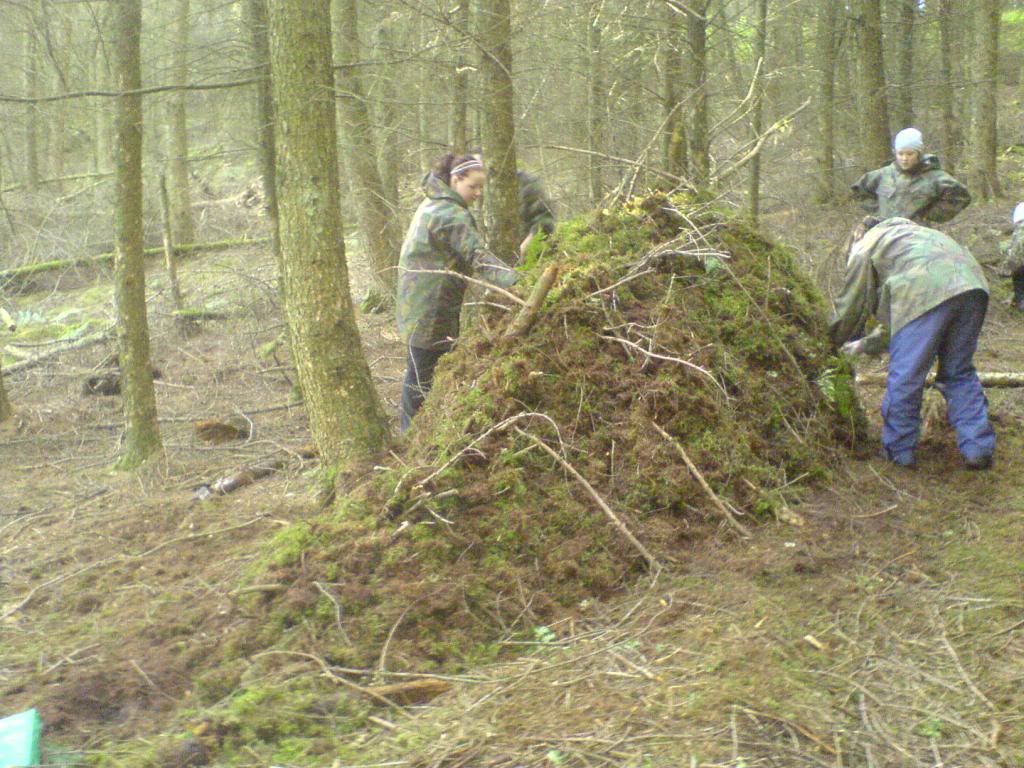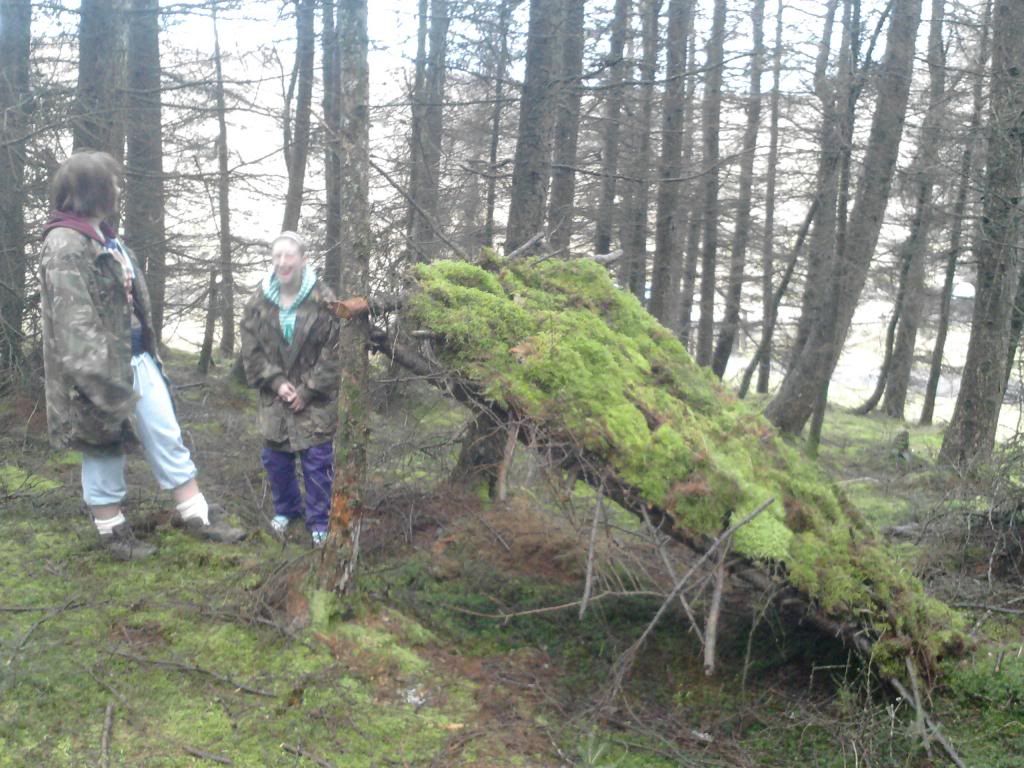Hi, I have only posted about 45 times on here but generally dip in and out of the huge wealth of information and resources held within the forum. I haven't achieved much lately but I thought I should contribute something until I do a proper overnighter worthy of a post.
I work for a college delivering BTEC Public Services to students of 16 - 20 years old. we have two year groups and this year we took the second years on a bushcraft camp to consolidate what they had learnt on a bushcraft day at the end of their first year ... sadly it was rather a failure :-( but lessons have been learnt all round for next time!
Last year the students built rudimentary shelters from forest debris and then from tarps before cooking a pasta based meal over an open fire ...
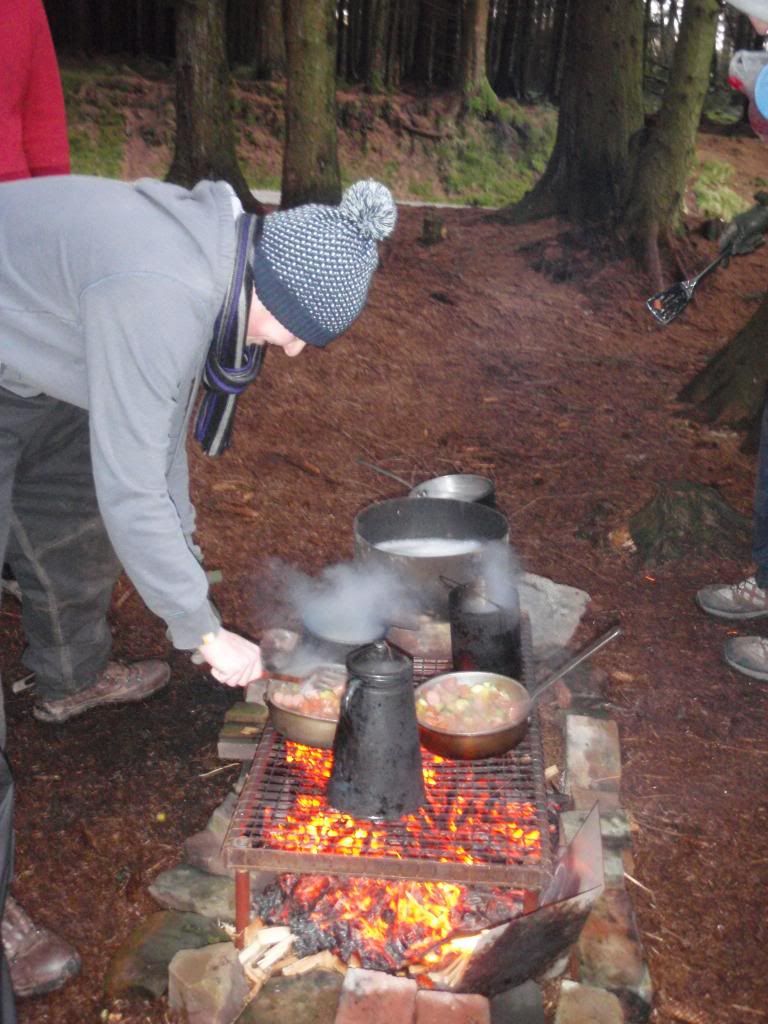
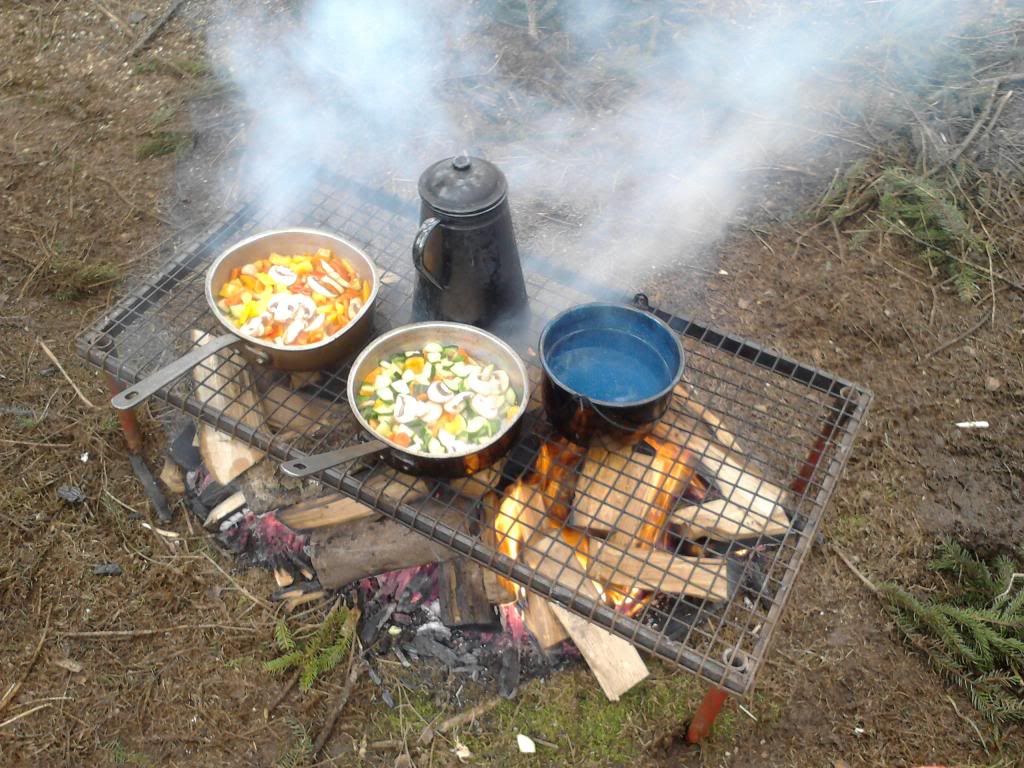
... and we usually build on this experience by making them cook over fires during a two night canoe expedition. This year we put the bushcraft overnighter in as a fun experience first though.
We set off for a local woodland (coniferous sadly but that is the predominant woodland type around us) and through a misunderstanding between two of us staff ended up stopping too close to a farmhouse overlooking the forested hillside. The students were grouped into three's and settled into building debris shelters (and nothing else, although, as poor weather was forecast we did encourage the use of orange emergency bivi bags). They struggled to get these shelters built to anything like weather proof - some of them because of the swiftly descending dusk and others because they just didn't buy into the activity. Anyhow, as darkness fell the students began to cook over bushcraft stoves before bed.
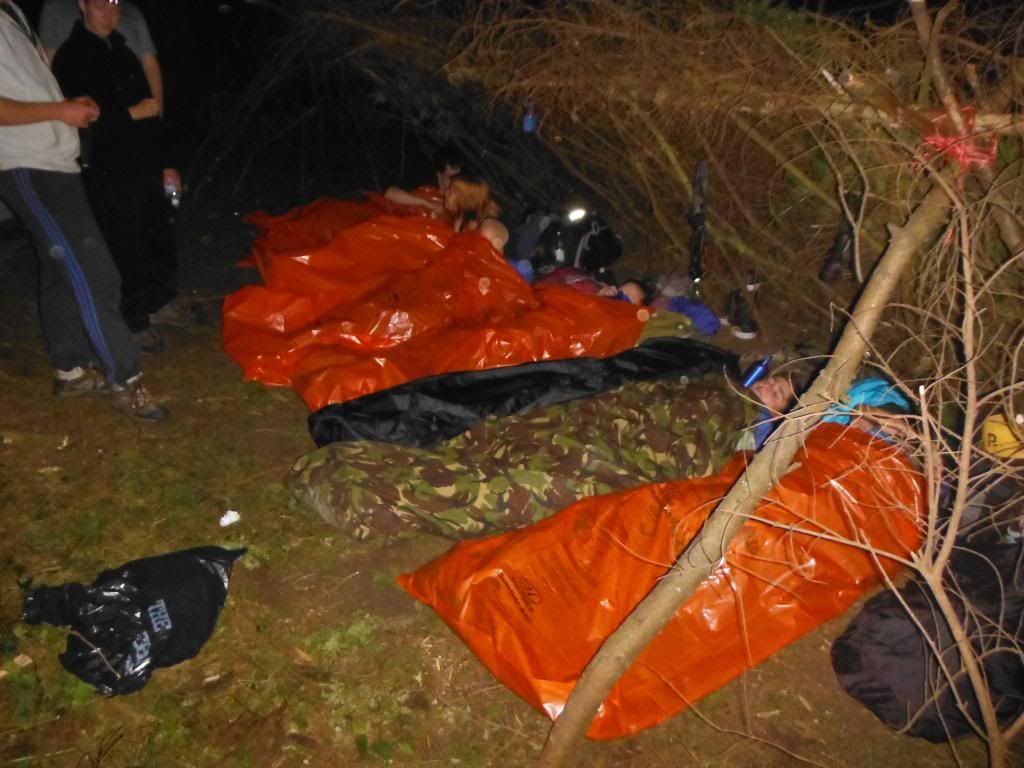
I had spent weeks preparing stove packs for the students (scouring charity shops for utensil holders and tea / coffee / sugar canisters to be used as billy cans) and each group of three had two stoves held in a PLCE side pouch, together with a PLCE utility pouch containing flint and steel, cotton wool and wooden lollipop sticks in case the wood was too wet for their limited firelighting abilities ... knives were a no-no with this group! Some of the students got right into the swing of things but it turned out that many of them just ate chocolate and their stove packs were untouched even after breakfast the next day!
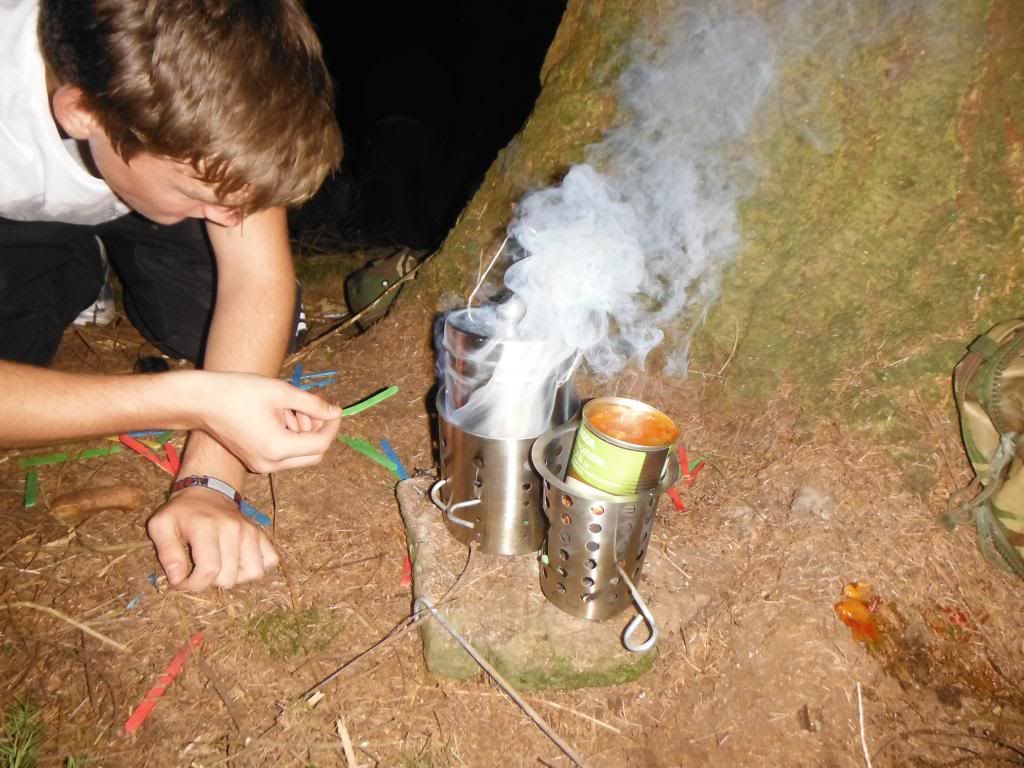
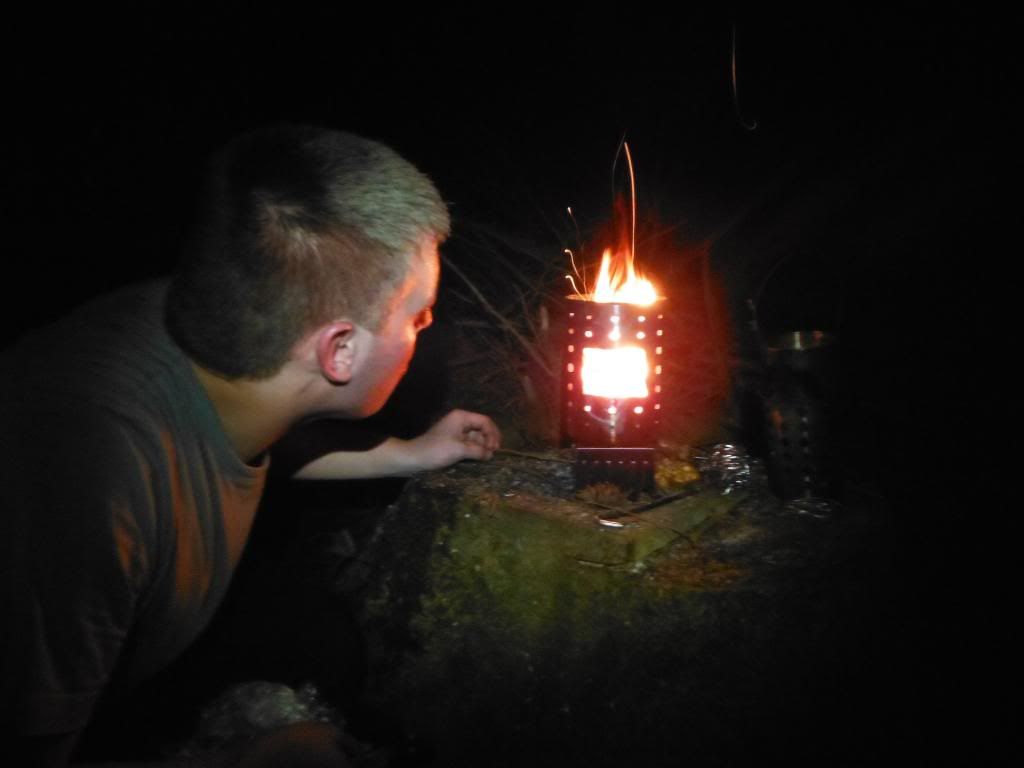
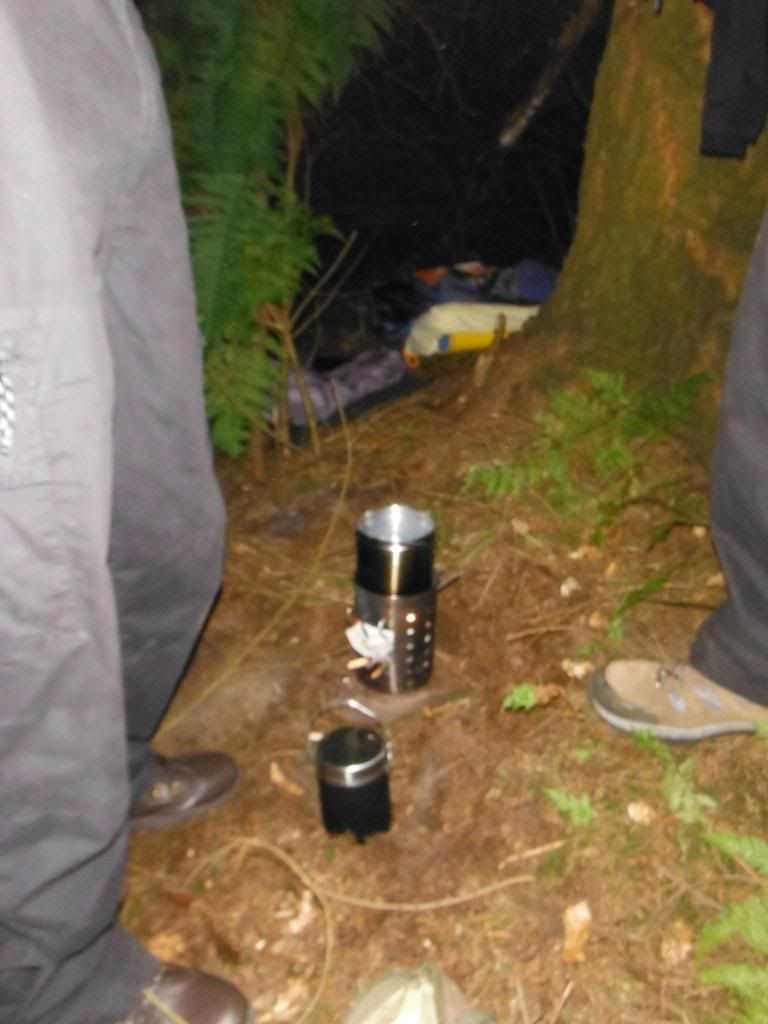
The fact that the groups of students were separated into small debris shelters in the darkness of the woods really calmed them down and a quiet night quickly fell ... apart from in the staff area where we soon had a social gathering around a fire ...
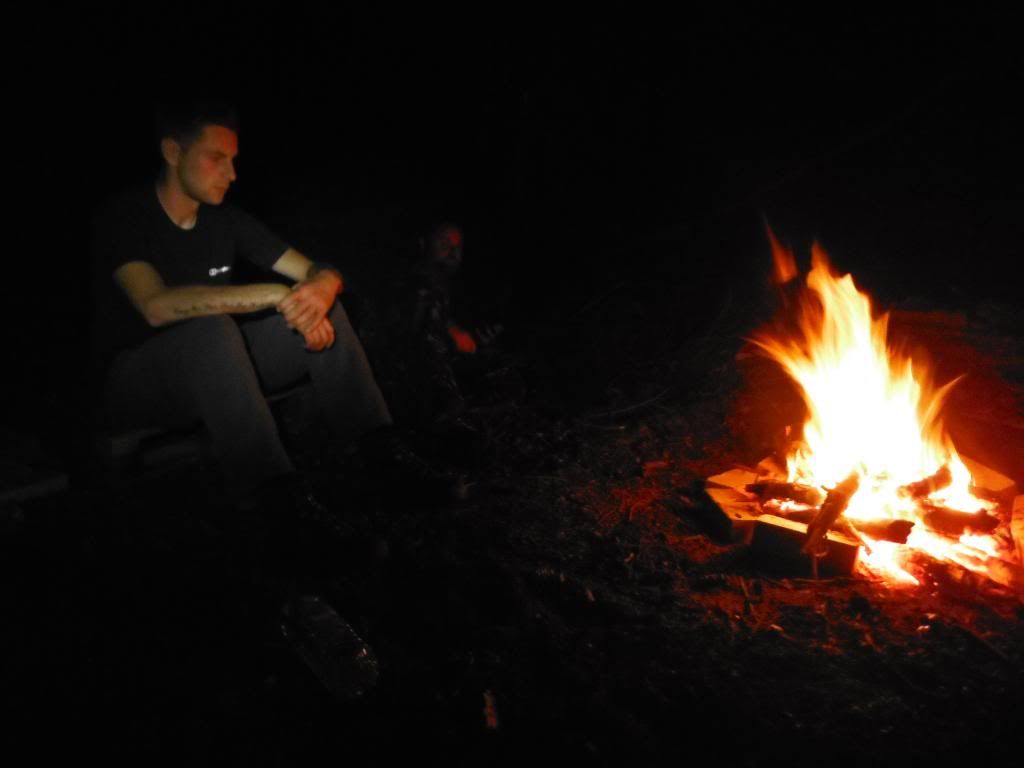
... and our hammocks (as we were teaching at 0915 after these students had limped home!
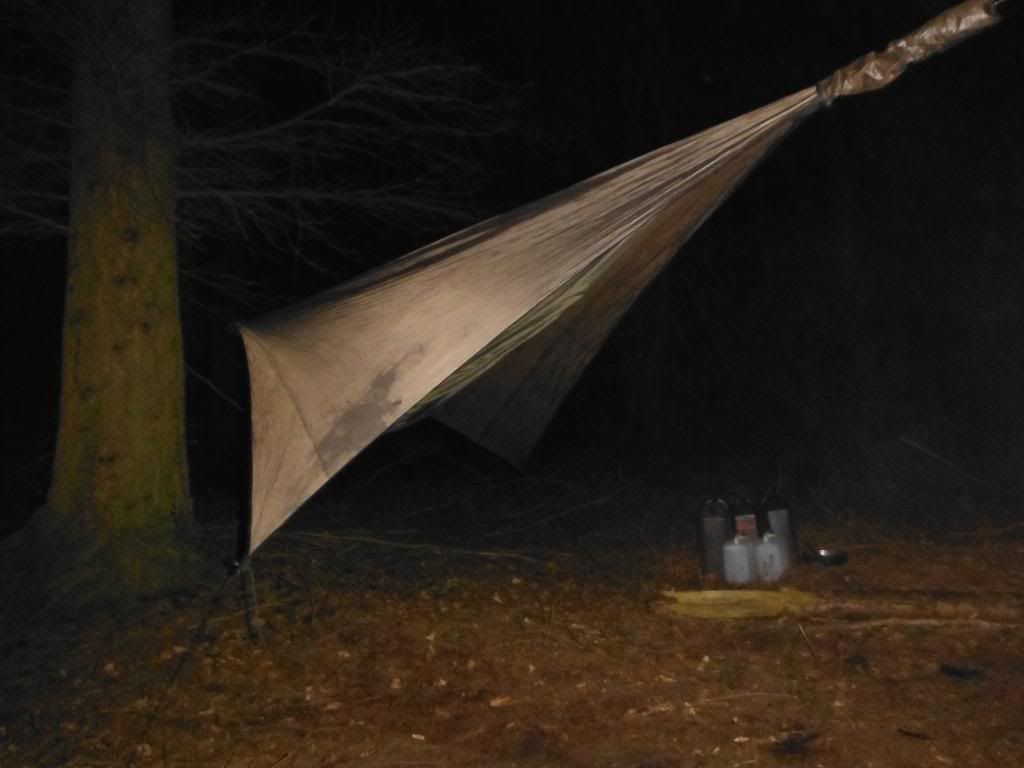
We rose the next day and had breakfast ... well three of us did. Even my colleagues had neglected to bring food with them so I had to share my bacon and rolls between three while two of the more motivated students got theirs cooking over the open fire. Even with all this time spent doing nothing the shelters were covered with litter and it took us over an hour of shouting and chasing to get all the rubbish picked up. The students destroyed the experience for me (and themselves) with their disinterest and idleness (although this is typical of this year group and I know that our first years will be much more engaged ... indeed some are buying their own hammocks in readiness already!) but it has made me look at the planning and thanks to this forum I have come up with some more focussed ideas.
Next year we will spend more time looking at the different uses of tarps for shelter, both as tarps and as tarp-tents. We will turn the overnighter into a two day activity to force the students to engage in the cooking, washing, eating etc and we will establish a circular aspect to the camp, deeper in the woods, so that the student shelters are built around a stone laid firecircle. We will look in more detail as instructing the students in the art of stripping, splitting and feathering wet wood to light a fire and I think we might take fish and rabbits to run a little cookery class in a survival style!
Thank you all for sharing your experiences and photos - hopefully mine will be a more interesting report next time.
I work for a college delivering BTEC Public Services to students of 16 - 20 years old. we have two year groups and this year we took the second years on a bushcraft camp to consolidate what they had learnt on a bushcraft day at the end of their first year ... sadly it was rather a failure :-( but lessons have been learnt all round for next time!
Last year the students built rudimentary shelters from forest debris and then from tarps before cooking a pasta based meal over an open fire ...


... and we usually build on this experience by making them cook over fires during a two night canoe expedition. This year we put the bushcraft overnighter in as a fun experience first though.
We set off for a local woodland (coniferous sadly but that is the predominant woodland type around us) and through a misunderstanding between two of us staff ended up stopping too close to a farmhouse overlooking the forested hillside. The students were grouped into three's and settled into building debris shelters (and nothing else, although, as poor weather was forecast we did encourage the use of orange emergency bivi bags). They struggled to get these shelters built to anything like weather proof - some of them because of the swiftly descending dusk and others because they just didn't buy into the activity. Anyhow, as darkness fell the students began to cook over bushcraft stoves before bed.

I had spent weeks preparing stove packs for the students (scouring charity shops for utensil holders and tea / coffee / sugar canisters to be used as billy cans) and each group of three had two stoves held in a PLCE side pouch, together with a PLCE utility pouch containing flint and steel, cotton wool and wooden lollipop sticks in case the wood was too wet for their limited firelighting abilities ... knives were a no-no with this group! Some of the students got right into the swing of things but it turned out that many of them just ate chocolate and their stove packs were untouched even after breakfast the next day!



The fact that the groups of students were separated into small debris shelters in the darkness of the woods really calmed them down and a quiet night quickly fell ... apart from in the staff area where we soon had a social gathering around a fire ...

... and our hammocks (as we were teaching at 0915 after these students had limped home!

We rose the next day and had breakfast ... well three of us did. Even my colleagues had neglected to bring food with them so I had to share my bacon and rolls between three while two of the more motivated students got theirs cooking over the open fire. Even with all this time spent doing nothing the shelters were covered with litter and it took us over an hour of shouting and chasing to get all the rubbish picked up. The students destroyed the experience for me (and themselves) with their disinterest and idleness (although this is typical of this year group and I know that our first years will be much more engaged ... indeed some are buying their own hammocks in readiness already!) but it has made me look at the planning and thanks to this forum I have come up with some more focussed ideas.
Next year we will spend more time looking at the different uses of tarps for shelter, both as tarps and as tarp-tents. We will turn the overnighter into a two day activity to force the students to engage in the cooking, washing, eating etc and we will establish a circular aspect to the camp, deeper in the woods, so that the student shelters are built around a stone laid firecircle. We will look in more detail as instructing the students in the art of stripping, splitting and feathering wet wood to light a fire and I think we might take fish and rabbits to run a little cookery class in a survival style!
Thank you all for sharing your experiences and photos - hopefully mine will be a more interesting report next time.

